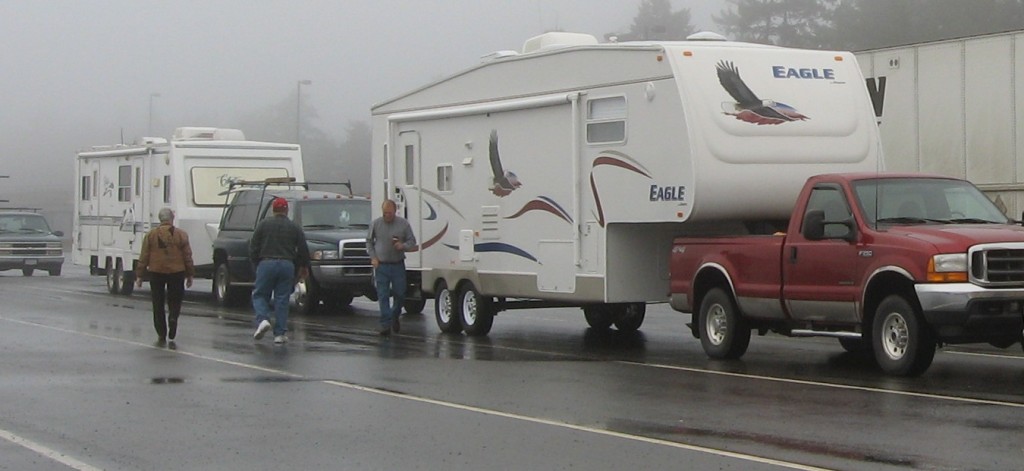5 Things to Consider
RV full-time living – How much will it cost you?
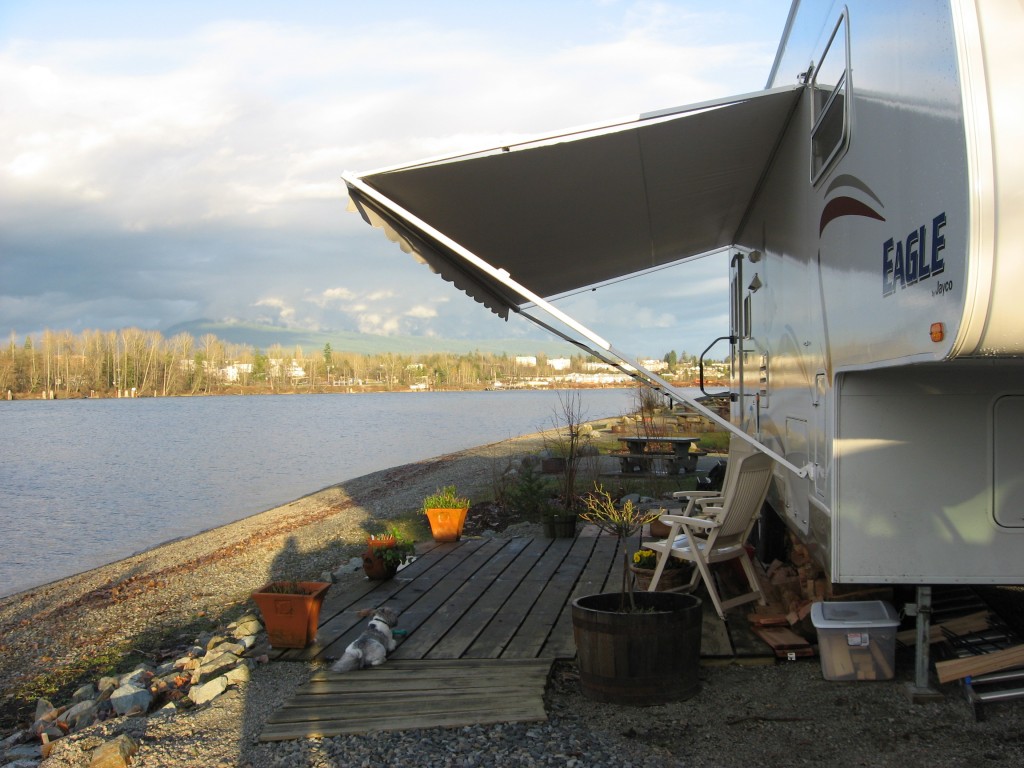
Let me guess….
You keep asking “how much will it cost me to RV full-time?”
You’re probably drowning in information coming at you from many of the RV blogs on the internet – all telling you something different.
You’re frustrated by the answers you get. Do you need $50,000 a year to live on when traveling or can you can manage on $25,000? It depends on who you talk to.
You just want to know how much it will cost YOU to RV full-time.

You do know what I spend and what you spend will be different – that’s a fact. But how much different?
There’s only one way to figure it out and that’s by knowing what expenses you won’t be able to avoid and what extras it would be nice to have but don’t need.
You need to relax.
Take a deep breath and let’s look at how you can figure out what your costs will be and what needs to be done to enable you to live on the money you have or what your income will be.
Table of Contents – 5 manageable chunks:
1. What the RV will cost you
2. What are the bare bone basics needed?
3. What is the cost of equipping your RV?
4. What will it cost to travel in your RV?
5. How you can reduce your costs if needed.
6. FREE RV BUDGET SPREADSHEET – get your copy now! click here!
Let’s get started.
1. How much will an RV cost me to live in it?
You know there’s more to this than just the price of the RV.
But first let’s talk about your RV and its expense.
It would be nice to have a 40’ diesel pusher with all the bells and whistles so you could go down the road in style. If you can afford that then you probably don’t need my advice but if not – let’s keep going.
For the rest of us – the price of the RV is important.
Just as important are what you need to have in your RV. I’m talking the basics – fridge, stove, full-size bed, bathroom with a shower, kitchen and anything else you feel is necessary to be comfortable.
Do you know how much money you have to spend?
If it’s $5,000 or $50,000 then that’s what you shop for – don’t go beyond what you’re comfortable spending. It’s nice to dream about that 40’ diesel pusher but is it realistic? If you can afford to have a bit of debt – go for it but if not, let’s figure out what you can buy.
If you already have your RV then you ahead in the game of RV shopping. For the rest of you – remember that list of what you need in your RV – pick it up and let’s look at the different types of RVs you’ll have to choose from.
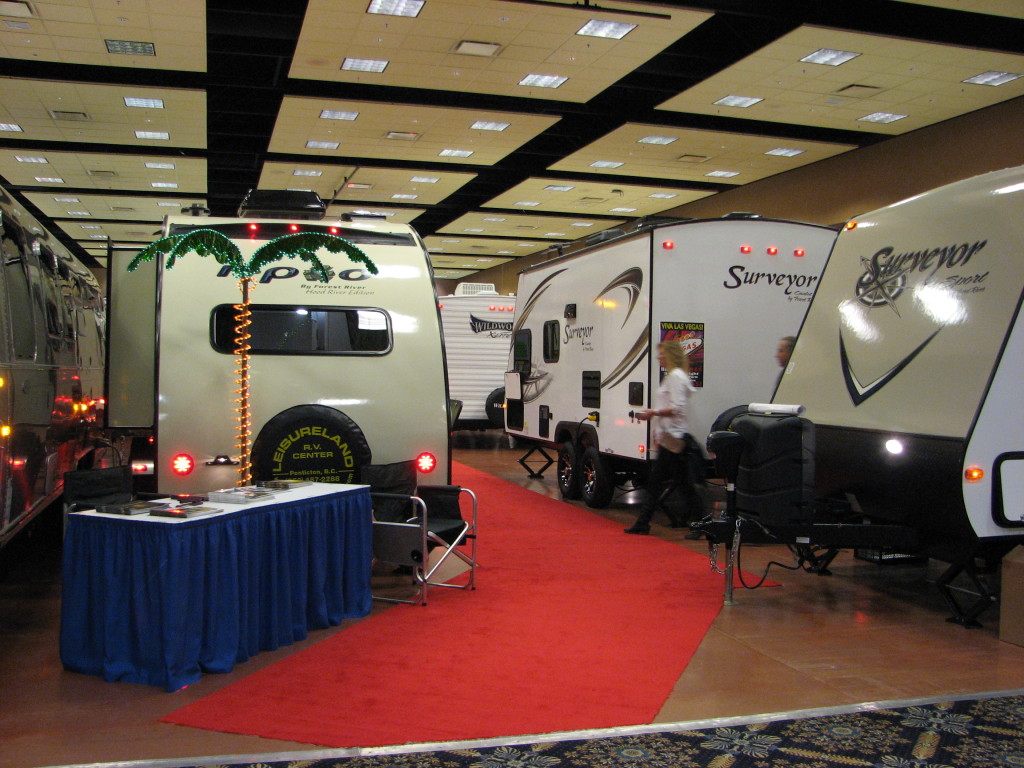
What choices do you actually have when purchasing for an RV for full-time living?
RVs come in many shapes and sizes from travel trailers, fifth wheels, camper vans, Class C’s, truck and campers and Class A motorhomes. Your choice will probably come down to budget, whether you have a vehicle to tow something with, what your needs are and what you are willing to spend or go into debt for.
Take your time and shop around for both used and new and be realistic. We bought used and are quite happy with it.
I know full-time RVers who spent $5000 on their fifth wheel who are extremely comfortable – it’s not really about the RV – it’s more about the journey and the RV lifestyle.
Unfortunately that’s not the only expense related to your RV
Do you need a vehicle to tow that travel trailer or fifth wheel? Factor that cost in as well.
Or… do you need a car to tow behind your motorhome. Include the price of that if it’s something you need.
Why your Vehicle Insurance depends on the RV you buy
Vehicle insurance – it varies, depending on the type of vehicle and RV you are living in. Oh, yeah – another thing. If you are living in your RV make sure you tell your insurance agent so you can be adequately covered. If not you may run into difficulty if you need to put in a claim – your insurance may be void.
So, when you’re shopping for an RV, check into what it will cost you for the insurance as well. That way it won’t come as a shock when you go to insure you new home.
Just a note: A 40’ class A that is relatively new may cost more for insurance than your 30’ fifth wheel and truck to tow it.
If you borrow money to purchase your RV – your lender may require you to have even higher insurance than you normally would purchase. So factor that in.
Why do we have to speak about maintenance and repairs?
Your head is probably spinning by now but there’s no need for it. Take your time and it will be okay.
There will always be something to fix or replace – remember, it’s the same in your house that you live in now. Your RV won’t be any different.
It’s called maintenance and repair and to keep your new home comfortable you will have to take care of any problems that pop up.
I suggest you budget a certain amount each month – put it aside so if your refrigerator breaks down and you don’t have warranty you can dip into your emergency fund and take care of it.
It’s better to be prepared. That could include roadside assistance – which will cover you if you should breakdown on the side of the road and need a tow.
Good Sam, AAA or CoachNet are some that I’m familiar with. We used AAA for many years but currently are using CoachNet just because we got a good deal when we purchased our new motorhome. Read my post on the advantages of RV Memberships.
The cost of the RV includes a few more things than just the price.
So now we know our costs for the RV will include.
1. Price of RV – including taxes.
2. Price of tow vehicle – including taxes.
3. Insurance for both vehicles including full-time living insurance.
4. Maintenance budget
5. Roadside assistance.
2. Are your basic costs to RV full-time the same as mine?
No. They won’t be – so for me to tell you what yours will be is silly.
But…realistically they will be the same as your current basic costs. That’s because they will probably include:
1. Medical – prescriptions. If you need a prescription monthly right now – you probably will later.
2. Food – we all love to eat.
3. Cell phone – internet – communication is key.
4. Propane – this is used for cooking, hot water tank, furnace
5. Laundry – laundromats
6. Toiletries, etc
7. Home base expenses – read further, I’ll explain.
8. Pets – what does it cost you now to feed Fido? That won’t change.
9. Emergencies and savings
10. Entertainment and gifts
Medical / prescriptions – this shouldn’t change from what you’re currently paying except if you are now on an employer plan and when you travel you’ll need your own medical insurance. Prescription costs should remain the same.
Groceries – depending on your budget and if you eat out a lot the cost for groceries will be an individual cost. However, you may not be eating out as much – do more home cooking with local ingredients which will reduce your costs.
The food bill may be similar to what it costs you now – if your able to reduce it – great, go for it!
Cell /internet – shop around and get a good plan. This will be decided on how you are traveling and where. What I mean by that is – are you staying in one area for long period of times? Does your provider cover large areas – such as across Canada? Or where in the US do they supply coverage? Is your cell phone and your internet plan connected? I’m not an expert by any means so won’t make any recommendations. But that’s also because how and where you decide to travel impacts your plan/provider. But my recommendation – shop around.
Propane – This will be needed for your cooking, hot water tank and possibly your furnace. The cost for a tank of propane varies but it should be between $20 to $30 a tank.
Laundry – Figure on 3 or 4 loads per week plus the cost of soap, etc will probably be the average. Washers may be anywhere from $1 to $3 per load and the dryer at least $2 per load. Some RVs have their own washer/dryer combo but most people use the RV park laundromat or a community laundromat they may be traveling thru.
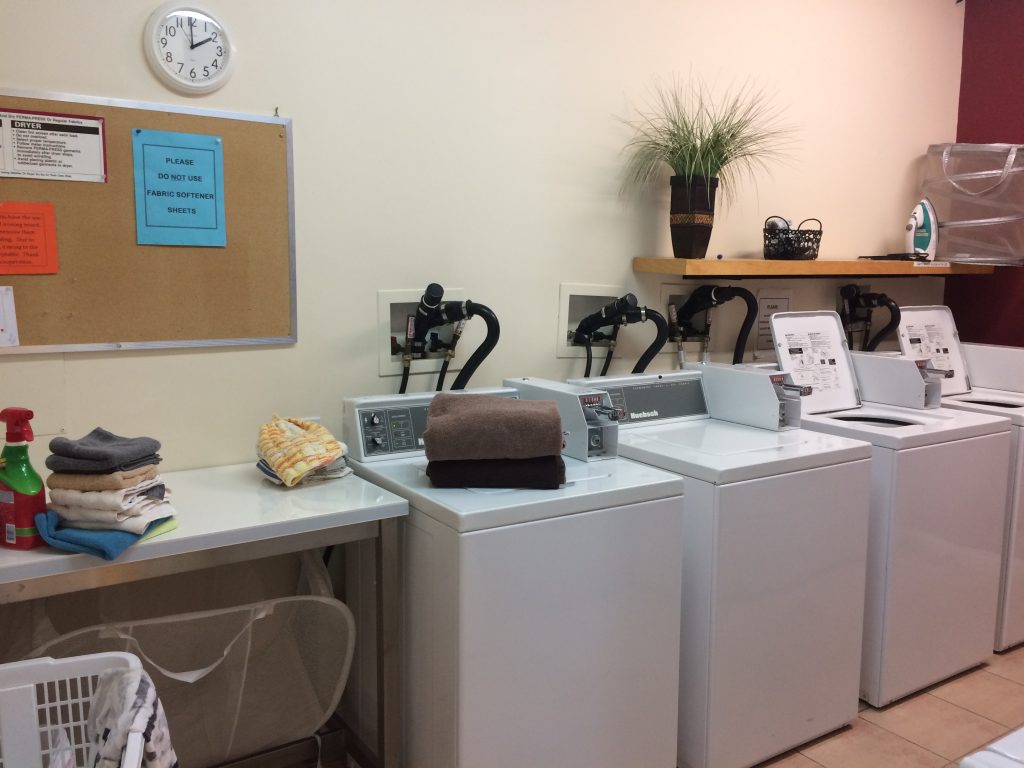
Toiletries – we all need shampoos, soaps, etc. This will probably be the same cost as currently.
Home base expenses – do you need a fixed address for licensing, medical, etc. Where will you receive your mail? Are you keeping your current home? Whatever these costs are – include them in your basic costs.
Entertainment and gifts – Include dining out – what do you pay now? Do you purchase gifts at Christmas, birthdays, special events? Then put that into your budget since you may want to continue as normal.
Pets – Not everyone has a pet, but if you do then budget for their food, grooming, inoculations and any other regular expense.
Emergencies and savings – Make sure there’s a regular amount placed in an emergency fund and for savings. Once again, that’s a personal preference and be realistic as to what you actually need and what you can afford.
3. Do you know what you really need in your RV?
Now that we’ve got the necessary basic stuff taken care of let’s go shopping.
Let’s start with the exterior with a list of probably needs.
1. Tools – necessary for repairs, setting up your RV and breaking down camp. This could include screw drivers, hammer, ratchet, etc. – Depends on how handy you are and what you’re skilled at.
2. Potable water hose.
3. Sewer hose for black and grey water drainage
4. Electrical cord – appropriate for your RV
5. Surge Protector
6. Cable TV cord
7. Water filter
8. Pads for stabilizers – if you have them.
9. Wheel chocks
10. Barbecue
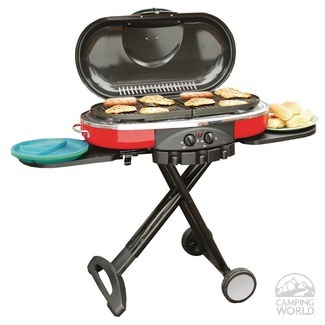
11. A couple of chairs / with a side table
12. Camp stove for an outdoor kitchen
13. Table cloth – easy to wipe off
14. Ground cover mat for outside your RV
15. Outdoor lantern
Now to the interior of your RV – don’t overload it!
We recently bought a class C motorhome and I made sure I had the following packed inside it.
1. Set of dishes – for 4. Non-breakable, light weight.
2. 4 Mugs
3. 2 non-breakable glasses
4. Cutlery for 4
5. Cooking utensils – personal preference – flipper, wooden spoon, etc.
6. Dish towels and cloths, potholders
7. Instant Pot / slow cooker combo
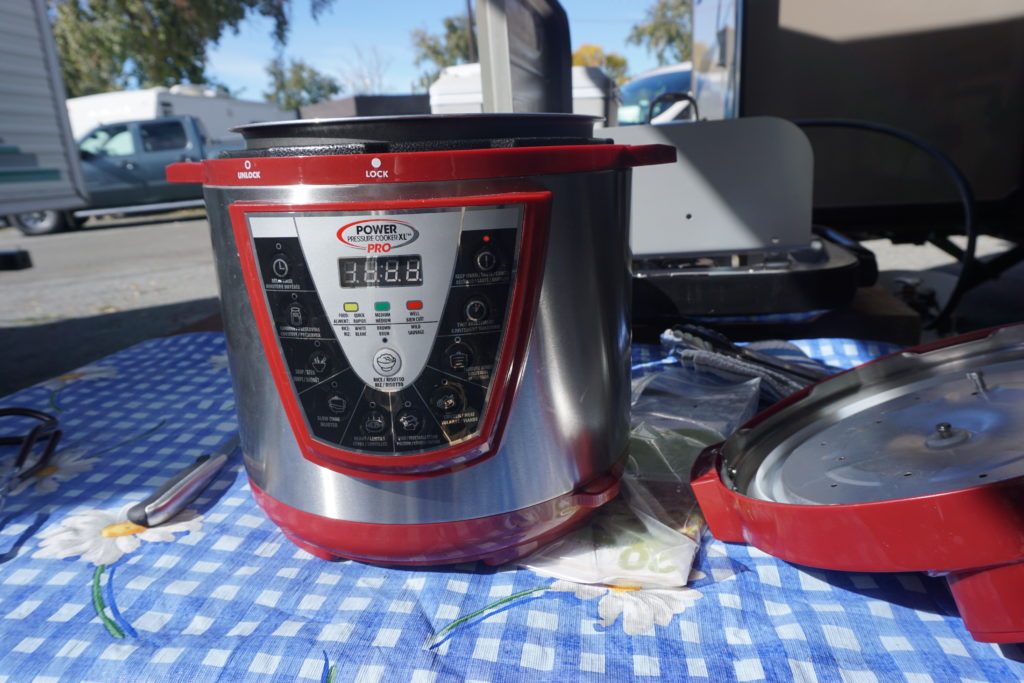
8. A set of storage bowls with lids – light weight, non-breakable, different sizes
9. 2 cooking pots – 1 smaller than the other
10. Frying pan
11. Things like tin foil, plastic wrap, baggies, etc.
12. Spices – personal preference
13. Kettle – I have one that goes on the stove – not electric
14. Coffee maker
15. Bedding: sheets, mattress topper, mattress cover, pillows, blankets – I ordered a full set of everything through Amazon that fit our RV bed specifically. It wasn’t expensive.
16. Towels, facecloths, bath mat
17. Rug for entrance to your RV
That’s a start but remember – don’t over do it. Keep it down to what you really need, keeping the weight down and the cost of fuel to haul it all around down as well.
You’ll notice I haven’t listed any food, toiletries, etc – that’s up to you.
4. Why your travel costs depend on the amount of traveling you actually do!
If you don’t travel much – your fuel costs will be reduced, your campground fees may be less and your income can be stretched further.
But… that’s not really the point of full-time Rving exactly.
Fuel – There is no doubt your fuel bill will probably be your highest expense and it will depend on how much actual traveling you’ll do and what the size of your RV is. Here’s an example of how to figure out your costs.
Say you’re driving a fairly large RV (diesel) and you get 8 – 10 miles per gallon. If you drive 100 miles at 10 mpg paying $3 a gallon for diesel, your fuel will cost you $30 to travel 100 miles.
That doesn’t mean you shouldn’t travel – just remember, take your time, enjoy your adventure and keep your costs down. Don’t forget to include the cost of fuel for your tow vehicle for sight seeing, etc.
Campground Costs – If you stay in luxury resorts, camping will be expensive. If you’re boondocking – the cost will be almost nothing. Prices may range from $15 per night to $100 a night. It will depend on the area, what amenities they offer and the season.
How to reduce your campground fees – stay longer. It’s that simple.
Most RV parks or campgrounds will have a weekly or monthly rate which is greatly reduced from the over night price. Consider traveling more off-season when rates are cheaper and the crowds are less.
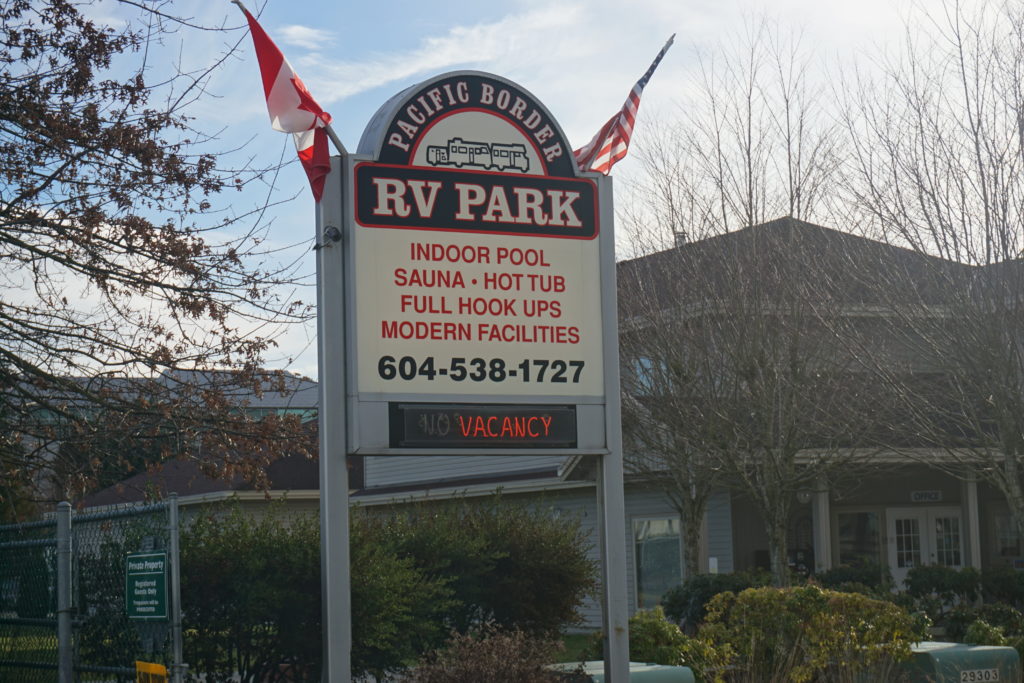
Boondocking – if you are boondocking then your camping fees are greatly reduced but that may depend on what services you need and where you’re at. There’s not always boondocking sites available but by careful planning ahead of time and being self-contained you can probably find a spot most nights. However, that’s only if you’re comfortable with this type of camping. Not everyone is.
Boondockers Welcome – Be My Guest RV Parking – where you can stay in a host’s driveway for free, and it’s safe and legal. These hosts are mostly RVers themselves who offer a space on their property for other RVers to park overnight or for a very short stay while enroute to their destination.
People have traveled right across Canada and the United States staying mostly with these hosts along the way and absolutely loved it.
What better way to meet people and have the benefit of a local host to share information with you and have a safe comfortable place to park your RV for an overnight stay.
Harvest hosts – Check out Harvest Hosts and learn about their classic membership and/or the plus membership. Both provide unlimited free 1 to 2 day overnight stays at local wineries, breweries, distilleries, farms, museums and a handful of other attractions. You could also stay at a golf course or country club for no cost. These hosts allow you to stay one or two nights free of charge and often have discounts on their products and /or services.
RV Clubs – there are many RV clubs you can join that may offer discounts for members. Shop around to find what’s applicable to your type of travel. We belong to Escapees – not necessarily for their campgrounds but they offer so much information that’s it’s worthwhile for us. That may not be the case for you. Some of the most well known are Good Sam. KOA, and Thousand Trails.
Travel insurance/medical – this is in case of an emergency. Are you covered if you are out of state or province and you get sick or injured? This would be in addition to your regular medical costs.
5. Learning to live in Your RV full-time with less doesn’t mean sacrificing.
Remember all those questions you had about “how much will it cost YOU to RV full-time”?
Take one thing at a time, research it – such as shopping for yourRV and then buy appropriately.
If your RV cost is what you can afford and not just what you think you need, then you’re on your way. Sometimes it just means living with less – and that’s okay because your new home is smaller than the house you leave behind. You won’t need as much.
Maybe it won’t be as fancy as you thought you needed but that’s not what this is all about. It’s more about living your new RV lifestyle, at a cost you can afford and how you want to live it.
To be able to RV full-time, know your budget, stay flexible, prepare to be open and have fun.
